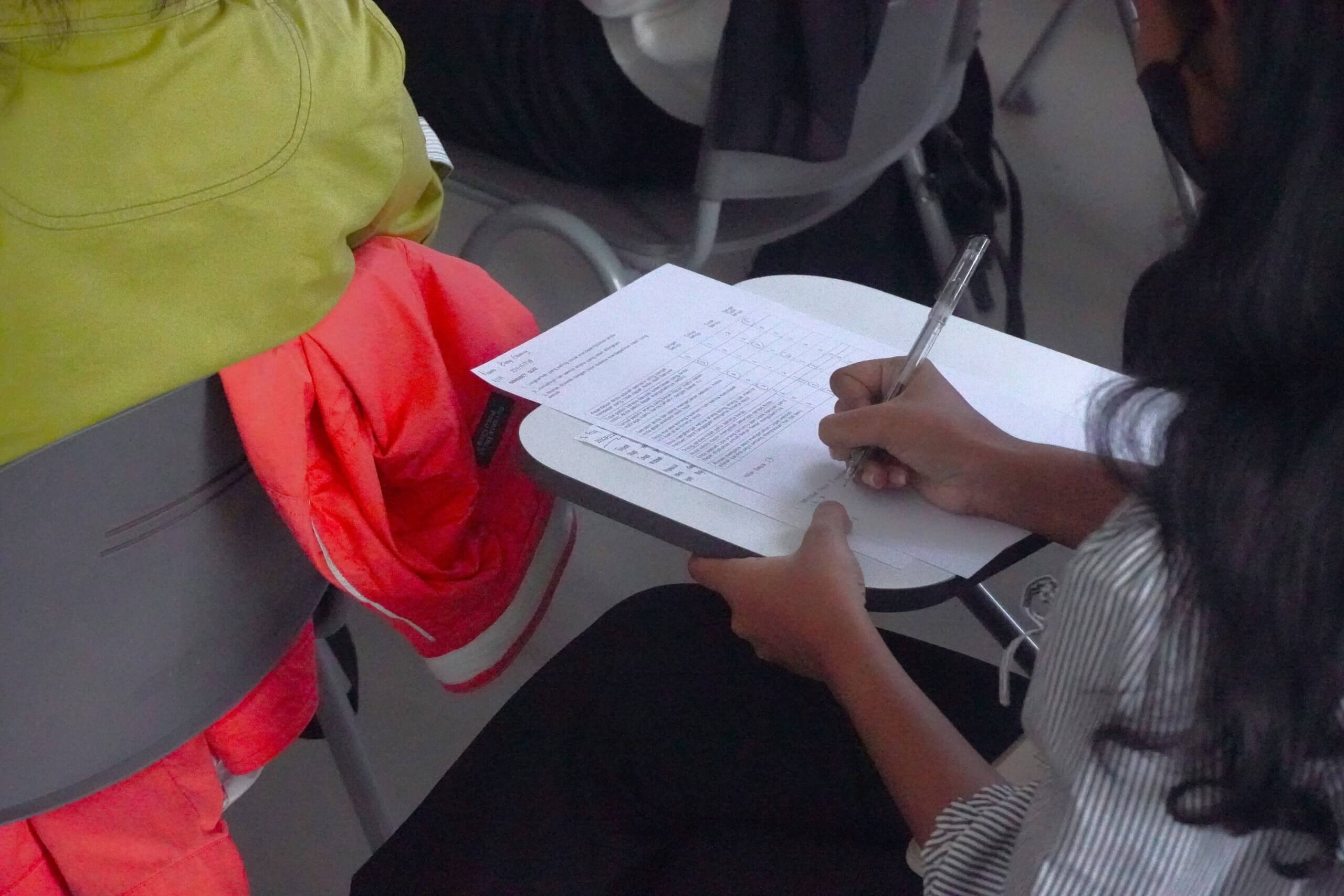How to Prepare for the EX280 Exam
Are you ready to take your Red Hat Certified Engineer (RHCE) skills to the next level? The EX280 Exam is the ultimate challenge for Linux administrators looking to prove their expertise in implementing, configuring, and managing containers using Red Hat OpenShift. In this article, we will guide you through the essential steps to prepare for this exam and ensure your success. Whether you’re a seasoned RHCE professional or just starting on your Linux journey, get ready for an immersive learning experience that will push your skills to new heights.
Overview of the EX280 exam and its importance
The EX280 exam is a crucial step for individuals seeking to advance their career in the field of Red Hat Enterprise Linux (RHEL). This performance-based exam assesses candidates’ skills in deploying, managing, and securing containerized applications using Red Hat OpenShift Container Platform. With the growing popularity of containerization and the increasing adoption of tools like Kubernetes, having an EX280 certification can be a game-changer for professionals looking to stand out from the competition.
One of the key reasons why the EX280 exam is so important is because it validates practical skills rather than just theoretical knowledge. By passing this exam, candidates demonstrate their ability to apply their knowledge in real-world scenarios and solve complex problems related to container management. Employers often prioritize professionals who can showcase hands-on proficiency over those with theoretical expertise alone.
Moreover, as businesses worldwide are embracing cloud-native technologies and DevOps practices, demand for professionals adept at managing containers is only going to rise. The EX280 certification equips individuals with the necessary skill set to leverage advanced features offered by Red Hat OpenShift Container Platform effectively. Additionally, it demonstrates their understanding of industry best practices for deploying applications on this popular platform. As organizations continue their digital transformation journey, having an EX280 certification could open doors to exciting job opportunities where candidates can make a significant impact while staying at the forefront of technological advancements.
In conclusion, the EX280 exam provides an opportunity for IT professionals to validate their expertise in managing containerized applications using Red Hat OpenShift Container Platform.

Understanding the exam objectives
Understanding the exam objectives is crucial when preparing for any certification exam, and the EX280 is no exception. By clearly understanding what the exam will cover, you can focus your study efforts on the areas that are most important and ensure that you are adequately prepared. The EX280 exam focuses on tasks related to Red Hat OpenShift Container Platform, so it’s important to have a solid grasp of concepts like deploying applications, creating and managing projects, configuring networking, and troubleshooting common issues.
One effective way to understand the exam objectives is by thoroughly reviewing the official documentation provided by Red Hat. This documentation not only provides detailed information about each topic but also includes examples and tutorials that can help reinforce your understanding. Additionally, it’s worth exploring online forums or communities where individuals who have already taken the exam share their experiences and tips. These resources can provide valuable insights into what topics were heavily covered in their exams and any specific areas you should pay extra attention to during your preparation.
In conclusion, taking the time to truly understand the exam objectives is an essential step in preparing for any certification exam, including the EX280. By familiarizing yourself with what will be tested on the exam and delving deep into those topics through official documentation and community discussions, you can gain a comprehensive understanding of key concepts while maximizing your chances of success come test day.
Gathering study materials and resources
When it comes to gathering study materials and resources for the EX280 exam, there are several options to consider. Firstly, it is essential to acquire the official study guide for this certification. This guide provides a comprehensive overview of the exam objectives, along with accompanying practice questions and sample scenarios. Additionally, online forums and communities focused on Red Hat exams can be an invaluable resource. These platforms allow candidates to share tips and insights based on their own experiences, providing valuable guidance on what topics to focus on and which study materials are most effective.
In addition to these traditional resources, exploring alternative sources can also be beneficial. For example, YouTube channels dedicated specifically to Red Hat certifications often offer video tutorials covering various topics related to the EX280 exam. These videos provide an interactive learning experience and can help reinforce key concepts in a more dynamic way than static reading material alone.
Lastly, practicing hands-on with virtual machines is crucial for success in this exam. Utilizing tools such as VirtualBox or VMware Workstation allows candidates to create virtual environments where they can experiment with different configurations and troubleshoot common issues encountered in real-world scenarios.
By utilizing a combination of official study guides, engaging with online communities, exploring video tutorials, and getting hands-on practice through virtual machines, individuals preparing for the EX280 exam will have a well-rounded set of study materials at their disposal. This multi-faceted approach ensures comprehensive coverage of all exam objectives while providing diverse perspectives that enhance learning effectiveness.

Creating a study plan and schedule
Creating a study plan and schedule can be the key to success when preparing for any exam, including the EX280. One effective approach is to break down your studying into smaller, manageable tasks. Start by identifying the main topics that will be covered in the exam and allocate specific time slots for each topic in your schedule. This will help you prioritize and ensure that you cover all necessary materials.
In addition to setting aside dedicated time for studying each day, it’s important to establish clear goals and deadlines to keep yourself accountable. Break down larger goals, such as completing practice exams or reading through study guides, into smaller milestones that can be accomplished within a shorter timeframe. By doing so, you’ll not only stay motivated but also have a sense of progress as you check off these mini-goals along the way.
While creating your study plan and schedule, don’t forget to factor in regular breaks and downtime. Research has shown that taking short breaks during focused study sessions can actually improve overall productivity and retention of information. So don’t feel guilty about taking some time away from your books; use this opportunity to relax and recharge before diving back into your studies with renewed energy.
Remember, everyone’s learning style is different—experiment with different techniques until you find what works best for you. Some people prefer studying alone in a quiet environment while others thrive on group discussions or online forums where they can exchange ideas with peers facing similar challenges.
Practicing with hands-on exercises and labs
Practicing with hands-on exercises and labs is crucial when preparing for the EX280 exam. These practical activities allow you to apply your theoretical knowledge in real-life scenarios, giving you a complete understanding of the concepts and skills needed for success. You can’t just rely on reading books or watching videos; you need to get your hands dirty and actually do the work.
Hands-on exercises provide an opportunity for you to test your skills in a controlled environment. They allow you to experiment, make mistakes, and learn from them without any real-world consequences. This is especially important when it comes to troubleshooting and problem-solving, as these skills are essential for a Red Hat Certified Engineer (RHCE). By working through different scenarios in labs, you will become familiar with common issues that may arise and develop effective strategies for solving them.
Moreover, hands-on exercises also help improve your time management during the exam. The ability to quickly configure systems, troubleshoot problems efficiently, and implement solutions accurately is critical within the limited time frame of the exam. Through regular practice with labs, you will become more adept at navigating through tasks swiftly while maintaining accuracy.
In conclusion, practicing with hands-on exercises and labs should be an integral part of your EX280 exam preparation strategy. It provides a practical learning experience that enhances understanding of concepts while honing troubleshooting and problem-solving skills – vital attributes of a successful RHCE practitioner. So roll up your sleeves, dive into those lab environments, and get ready to master the challenges that lie ahead!

Reviewing and revising key concepts
One of the most crucial steps in preparing for the EX280 exam is reviewing and revising key concepts. While it may be tempting to dive straight into practice exams or cramming information, taking the time to thoroughly understand the foundational ideas is essential for success.
When reviewing key concepts, it’s crucial to approach them from different angles. Instead of simply memorizing facts, try to grasp the underlying principles and how they relate to each other. This not only helps in retaining information but also enables you to apply that knowledge in real-world scenarios. Moreover, consider seeking out alternative explanations or perspectives on a particular concept. Engaging with different viewpoints can provide fresh insights and enhance your understanding of the subject matter.
Conclusion: Final tips for success in the EX280 exam
In conclusion, when it comes to preparing for the EX280 exam and ensuring success, there are a few final tips that can make all the difference. First and foremost, practice, practice, practice. Utilize the available resources such as Red Hat’s OpenShift Container Platform documentation and online forums to gain hands-on experience and truly understand the concepts covered in the exam. Additionally, be sure to take advantage of any training courses or workshops offered by Red Hat or other reputable organizations.
Furthermore, don’t underestimate the power of collaboration. Engage with like-minded individuals who are also studying for the EX280 exam and form study groups where you can discuss concepts, share insights, and challenge each other’s understanding. This collaborative approach not only enhances learning but also provides a support network that can help navigate through any roadblocks encountered during preparation.
Finally, on the day of the exam itself, take a deep breath and stay focused. Time management is key here – allocate your time wisely among different sections of the exam to ensure that you have sufficient time for each question. Remember to read each question carefully before attempting an answer and avoid second-guessing yourself unless absolutely necessary.
In conclusion, with careful preparation using practice material and real-world scenario-based approaches along with collaboration with fellow learners plus effective time management during exams will set you up for success in passing EX280 certification confidently.



